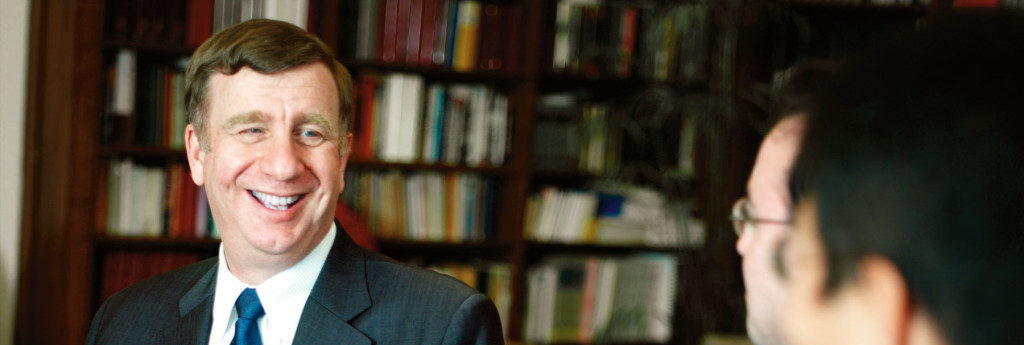Ryan Park
J.D. ’10, Harvard Law School; Solicitor General of North Carolina
Professor Bill Alford is best known to the world as the visionary scholar-diplomat, one who has spent decades building bridges between East and West. Others know him as the tireless advocate for persons with disabilities, one who has helped to break barriers and open hearts through his patient and innovative leadership. But to his students, Professor Alford is also the beloved teacher, mentor and friend—one who is always quick with a word of encouragement, and generous with his time and ideas.
Professor Alford was, hands down, the kindest and most supportive professor I encountered while a student at Harvard Law School. Before Harvard, we had both attended Amherst College, thirty-five years apart. And the way he approaches his teaching and scholarship has always struck me as guided by the best of the liberal arts tradition. To read deeply but think broadly, drawing unexpected connections across genres. To embrace and absorb theory, but always with an eye to contributing in a positive way to the world of people, places, and things. And to maintain a steadfast commitment to developing students as whole persons, where character and achievement are equally valued.
I first encountered Professor Alford as a 2L, when I enrolled in his yearlong seminar on international law. In the first semester, we studied and critiqued emerging scholarship in the field, meeting directly with authors who visited to workshop their pieces. Throughout it all, Professor Alford taught a masterclass in civil discourse, teaching us through both word and deed how to navigate at-times intense disagreement with graciousness and mutual respect.
In the second semester, we aimed to develop an academic piece of our own. Professor Alford supervised a paper I wrote on the spread of the jury trial across the globe. As with so many of his students who were lucky enough to learn from him, he patiently helped me hone my unkempt ideas into a workable project with both scholarly and practical value. To this day, it was the most intellectually ambitious writing project I’ve attempted—and researching and writing it was the capstone of my two decades of formal education.
I will always carry with me the lessons Professor Alford taught me. Lessons in the law, but also lessons in judgment, integrity, and humanity. And even after I was no longer his student, Professor Alford has always been there, ready with a willing ear and thoughtful advice as I navigate my career. He is a mentor who became a model for the kind of thinker, leader, and person I’d like to be.










